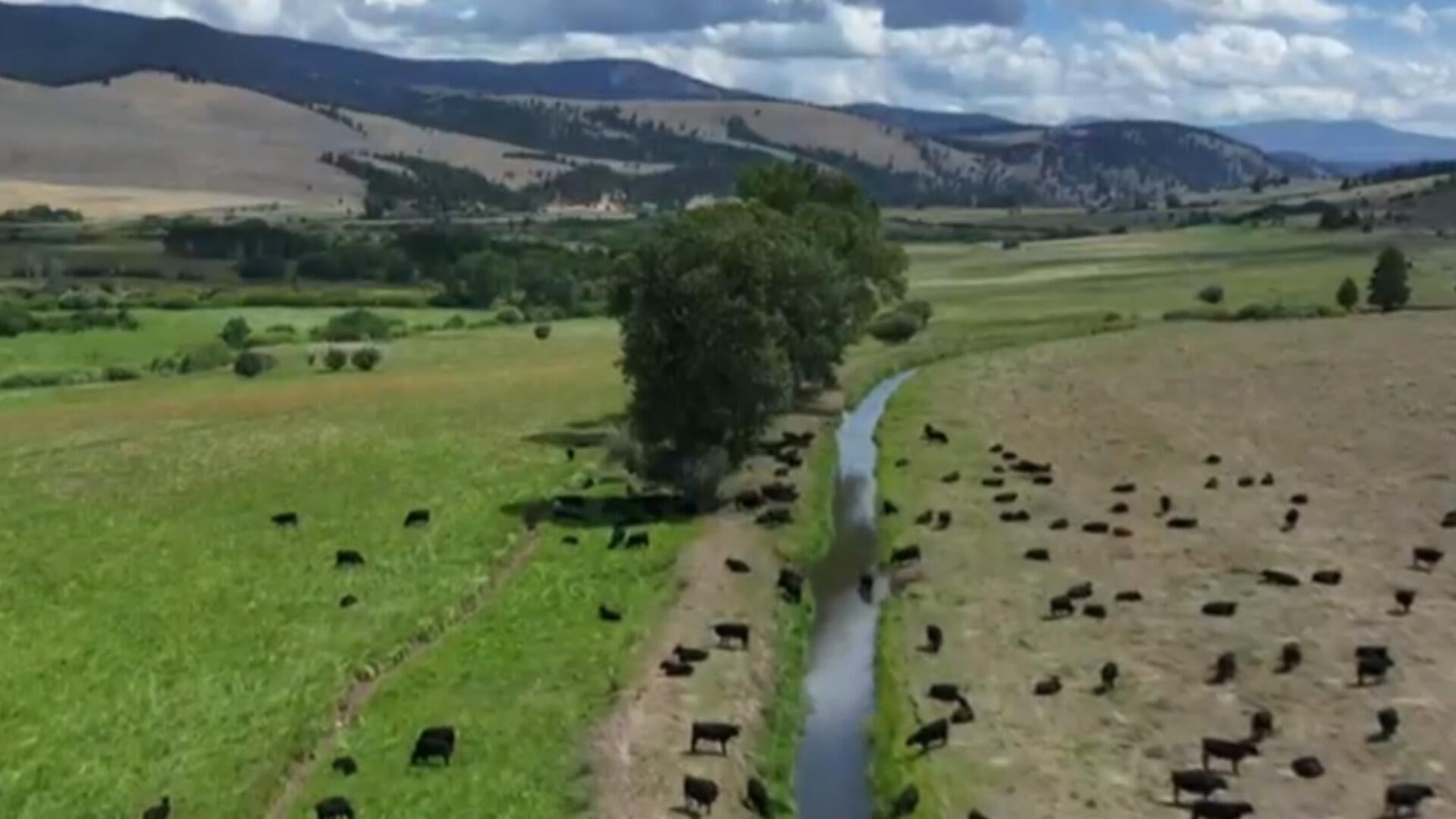How ranchers in Montana's Blackfoot Valley are challenging the status quo amid existential threats
In Montana's Blackfoot Valley, Cole Mannix and his family are raising 1,200 head of cattle on 50,000 acres.
The Mannix family has been working this land for 143 years, but big food, big agriculture and extreme weather are threatening the next generation.
"Almost everything about our food system is terminal," Mannix said.
Mannix and his family say long-term survival means challenging the existing food system.
"People working closest to the land need to be supported. But what we've done is make a food system that marginalizes those producers, squeezes their margins as tight as possible," Mannix said.
So rather than shipping all of its cattle to large industrial meatpackers, Mannix Ranch is processing a third of its livestock locally and selling directly to consumers.
"We're going to build a little model that makes the old one obsolete. Then that model can be replicated across the country," Mannix said.
Mannix cofounded Old Salt Co-op, partnering with five ranches who are all committed to sustainable land management. They sell their beef collectively at their local restaurants, butcher shop and online.
"Old Salt Co-op is a bright spot that does justice to land and to all of the employees along the supply chain and to our investors and to our customers," Mannix said.
Walter Schweitzer, president of the Montana Farmers Union, likes what he sees.
"We need to give back to where we raise our food locally, package it in our communities to be eaten by our neighbors. That's called food security," Schweitzer said.
When asked if what's being built by Mannix is the model for the future, Schweitzer said, "I think so. It's where we should have been."
The co-op ranchers say regenerative ranching and working with soil rather than against it is vital.
"Regenerative ranching is the use of livestock to impact an ecosystem of plants and then to let it rest," Mannix said.
Mannix says resting parcels of land for up to two years keeps the soil fertile and resilient, especially in the face of extreme weather.
"One of our Old Salt member ranches, in the driest years of its ranch's history, has been able to double the grass production. That is a tremendous ecological win," Mannix said.
Not only is this the preferred method of the Old Salt ranchers — it's crucial to their survival.
"We have to do this. It's an existential necessity, and it's a legacy we want to leave our kids," Mannix said.

